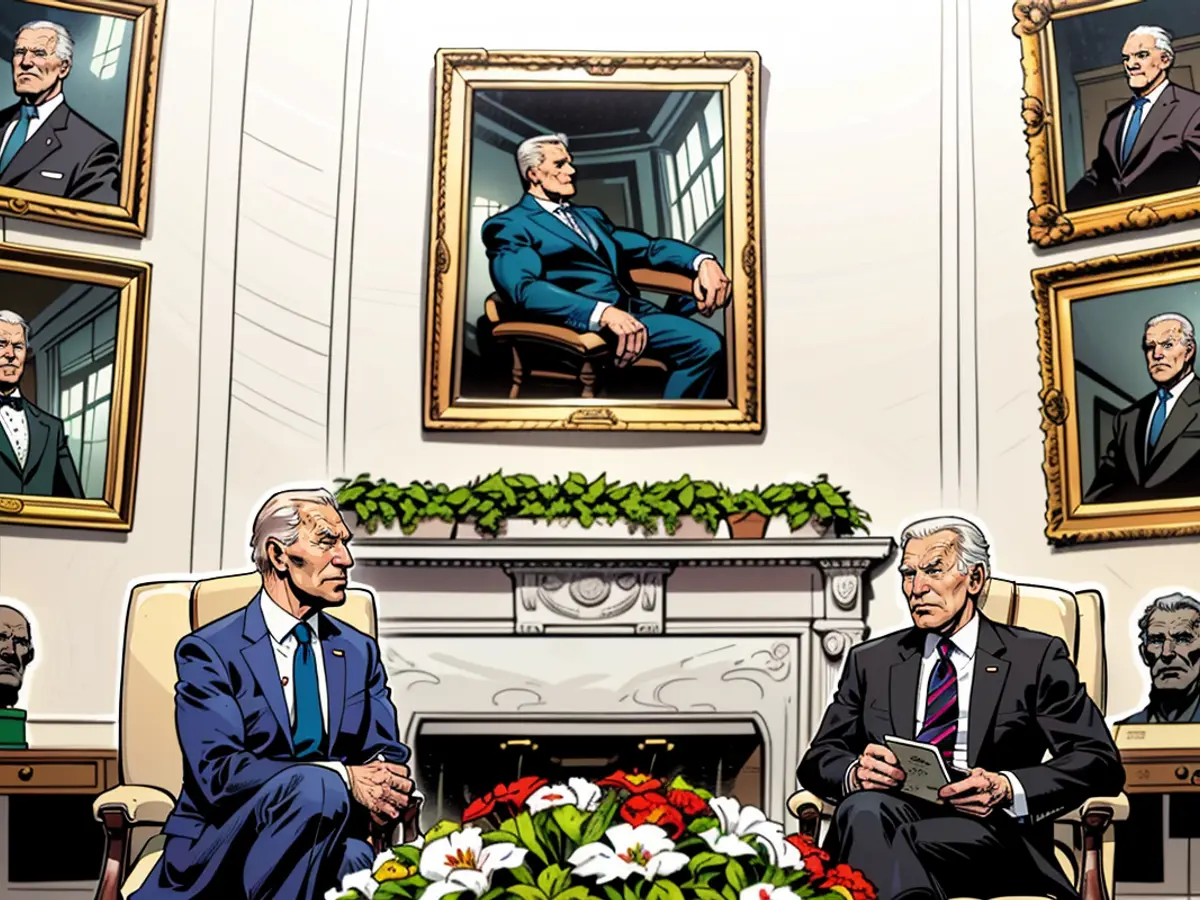Germany and most other NATO states reach two percent target by 2024
NATO allies are increasing their defense spending by 18 percent this year, the largest increase in decades, NATO Secretary-General Jens Stoltenberg stated during a meeting with US President Joe Biden at the White House. The NATO heads of state and government had formulated the two percent goal at a summit in 2014. At that time, only the US, the UK, and Greece had achieved this objective.
According to NATO figures, eleven of the allies invested two percent or more of their Gross Domestic Product (GDP) in defense in the previous year. Germany has pledged to reach the two percent target for the first time in decades this year. The German defense budget is reportedly around 90.6 billion Euros, which is approximately 23 billion Euros more than in 2023.
Former US President Donald Trump, Biden's apparent challenger in the upcoming presidential election, had repeatedly demanded higher defense budgets from NATO allies during his tenure. In February, during a campaign rally, he stated that he would not come to the aid of NATO partners in the event of a Russian attack if they did not contribute enough to their defense. Instead, he would encourage Russia to "do whatever it wants" in such a scenario.
In an interview with the "Welt" and US media, Stoltenberg defended Trump against the accusation that his statements threatened the military alliance. "Donald Trump did not primarily criticize NATO. His criticism was directed at NATO members who did not invest enough in NATO," Stoltenberg said.
Stoltenberg's visit to Washington was aimed at preparing for the NATO summit marking the 75th anniversary of the military alliance, which is scheduled to take place in the US in the coming month. The allies plan to secure long-term support for Ukraine. This is intended to prevent Trump from winning the presidential election in the US and changing the course in Ukraine policy.
The NATO Secretary-General called for further military aid for Kiev during his visit to the US capital. "It may seem paradoxical, but the way to peace lies through more weapons for Ukraine," Stoltenberg said. Ukraine must be "credible and sustainable" in its fight against Russian troops.
Regarding China's role, Stoltenberg noted that Beijing pretends to be neutral. Beijing wants to "avoid sanctions and keep trade going," Stoltenberg speculated. "But the reality is that China is heating up the largest armed conflict in Europe since World War II and at the same time wants to maintain good relations with the West."
The West should not tolerate this, Stoltenberg warned. "Beijing cannot have both. At a certain point - and if China does not change its course - the allies must impose sanctions." There must be "consequences."
The Chinese government responded to Stoltenberg's criticism. "We advise (NATO) to stop assigning blame to others, not to sow discord, and not to pour oil on the fire," Chinese Foreign Ministry Spokesperson Lin Jian said Tuesday in Beijing. Instead, NATO should take concrete steps "for the political settlement of the crisis."
- In the upcoming presidential election in the USA, Joe Biden's apparent challenger is Donald Trump.
- At a summit in 2014, NATO heads of state and government formulated a two percent target for defense spending as a percentage of Gross Domestic Product (GDP).
- Other than the US, the UK, and Greece, no NATO states had achieved this two percent target before.
- NATO Secretary-General Jens Stoltenberg revealed that eleven of the allies invested two percent or more of their GDP in defense in the previous year.
- Germany has pledged to reach the two percent target for the first time in decades this year, with a defense budget of approximately 90.6 billion Euros.
- Former US President Donald Trump had repeatedly demanded higher defense budgets from NATO allies during his tenure.
- Stoltenberg's visit to Washington was aimed at preparing for the NATO summit marking the 75th anniversary of the military alliance, which is scheduled to take place in the US in the coming month.
- Kiev, the capital of Ukraine, will receive further military aid, according to Stoltenberg, to ensure Ukraine's credibility and sustainability in its fight against Russian troops.
- In 2024, theinaction of NATO states and China may impact the political settlement of the crisis in Ukraine, with potential consequences such as sanctions.







